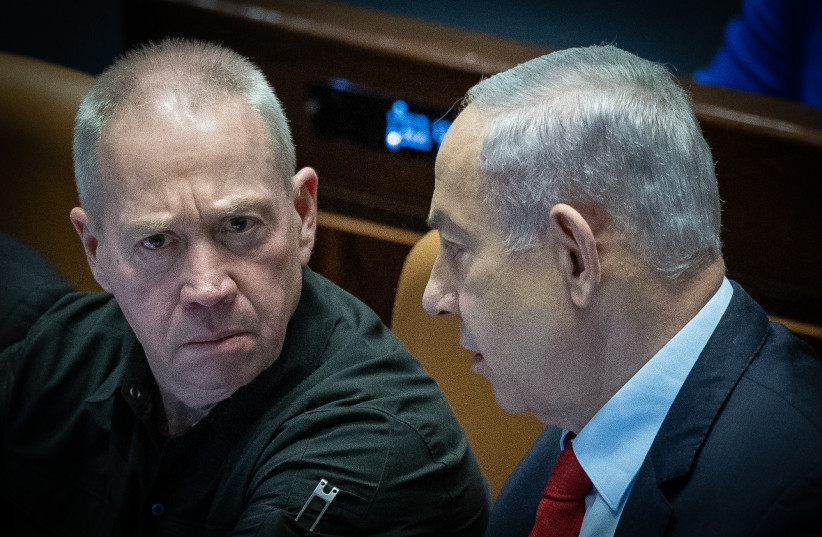MK Meir Cohen from Yesh Atid, former welfare and social services minister, was interviewed recently by Anat Davidov and Udi Segal on 103FM radio about the war in Gaza, about the departure of New Hope chairman Gideon Sa'ar from the coalition with Benny Gantz Gantz, and on whether Yesh Atid would join the current coalition. He also criticized the conduct of the government and the Knesset by stating, "There are debates here that you can't believe someone would raise during a war," and said of the families of the abductees, "I see that it has become routine."
Regarding the hostage deal taking shape, Cohen said that he "sees the families, their story becomes routine. This is the great danger that we are in the overall picture of another thing called captives, and the world continues as usual. I sincerely hope that this will not happen, and we are doing everything we can to prevent it."
When asked if he was afraid that the hostages would never be released, he answered, "Yes. I don't know if the government will give them up, but the government's conduct and the lack of determination among some of the people I talk to lead us to the perception that there is not enough determination. Where there is not enough determination, that a state abandons 134 hostages—that's [moral] bankruptcy."
He reveals that "There is looting of the state budget. It's unbelievable that someone thinks that in the great distress we are in, they can pass such a budget." He added, "We, as Yesh Atid, say that all we need to invest everything in order to return the hostages. Everything must be done to bring them back, and if we have to pay a heavy price, we should."
Further into the interview, Cohen was asked if the prime minister and his government could afford to stall the return of the hostages. Cohen answered, "I don't know. We are talking to them and making our voices heard. I hear determination from one side, even within the families of the hostages. We keep saying we won't end the efforts. Our people probably die in Gaza every week."

The factors that influence Netanyahu's major political decisions
Cohen also stated, "I am realizing that Gantz and Eisenkot do not have a significant influence on the government," and said regarding Sa'ar, "I think that what Gideon did was his decision but he should not have done it. It is his sole right to ask to be a cabinet member. What is worrying is that I think that the prime minister will accept him into the cabinet, but he will also bring Smotrich and Ben-Gvir along with him.
"Since we are witnessing the crazy circus, the lighting of bonfires in our districts by the security minister, I am very afraid of how the reduced cabinet will look. I realize that both Gantz and Eisenkot no longer have a significant influence on the conduct of the government, and I call on them to leave. Up until now, they are an oxygen balloon for Netanyahu and the failed government."
When asked if there was an option for them to join the current coalition, Cohen said, "We are no longer talking about entering the government. We were the first to want a government, but we warned against very radical and messianic elements. Even two months ago, we approached the prime minister and said, 'Any deal you offer, we will back it up.'
Regarding Israel's political reputation, Cohen stated, "I hear the voices in the Knesset as if we are in our own utopian world. To be clear, the Americans, the English, and the Germans are not telling us not to enter Rafah, they are not telling us not to continue with the elimination of Hamas, but they are asking what will happen after the operation. Netanyahu is not ready to answer that. If we want positive international attention and legitimacy, let's have a dialogue, not fight with the Americans. The prime minister suggests they are against us and only he knows how to stand up to them. It is unnecessary and it puts us at risk ".
